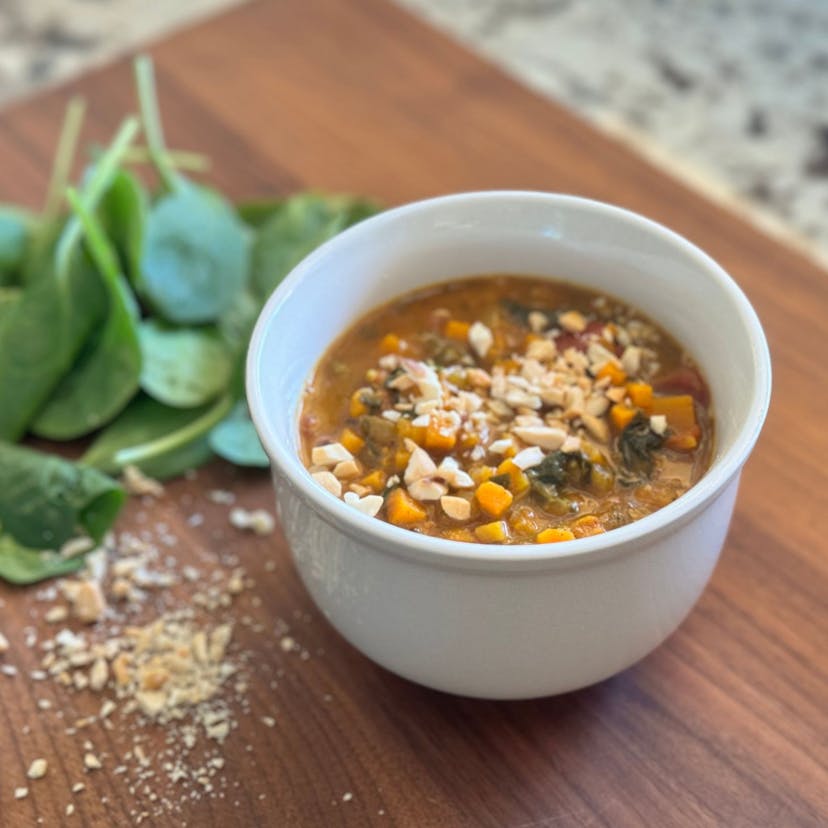7 Foods to Avoid to Lose Belly Fat
Tired of stubborn belly fat? Making simple shifts to your food selection can help you avoid that unwanted bulge.

When does belly fat become dangerous? No one can pinpoint the precise moment when you go from having an acceptable amount of fat to an unhealthy amount of fat around your midsection.
However, according to the Journal of the American College of Cardiology, research shows that an increase in stomach fat is associated with newly identified and worsening heart disease risk factors.
The 2016 study ‘Cardiovascular Disease Risk Factors’, written by Jane J. Lee, PhD, and colleagues revealed that these adverse changes to your cardiovascular risk could become evident in even just a short amount of time.
While belly fat can be relatively easy to gain, it often proves much harder to lose – especially for those who aren’t making healthy food choices. The following list pinpoints 7 foods to avoid to lose belly fat and achieve your weight loss goals.
Call 707.888.4191 to Schedule a Consultation
1. Carbohydrates
A 2012 study conducted by researchers at Johns Hopkins Medicine compared two groups of overweight individuals for a period of six months. One group participated in a low-carb diet and the other a low-fat diet. Low-carb dieters lost 10 more pounds than low-fat dieters, for a total weight loss of 28 pounds and 18 pounds comparatively.
Foods high in carbohydrates include:
- Breads
- Pastas
- Rice
- Grains
- Starchy foods, like potatoes
One of the main concern with high-carb foods is that they turn into sugar when your body processes them. Sugar is easily stored as an energy reserve (aka fat) – making it hard for you to shed inches around your waist.
Popular Recipes
2. Especially Potatoes
Among carbohydrates, potatoes have been found to be the biggest culprit of belly fat. In 2016, The New England Journal of Medicine released findings from a long-term research study that evaluated 120,000 healthy, non-obese women and men.
The study, ‘Changes in Diet and Lifestyle and Long-Term Weight Gain in Women and Men’, found that those who ate potatoes and potato chips gained an average of 2.97 pounds. Potatoes chips contributed to a 1.69-pound weight gain and potatoes a 1.28-pound weight gain.

One way to limit sodium is cooking at home. Restaurant food is notoriously high in sodium. By preparing your own food you can control how much salt is added.
3. Foods High in Sodium
Shocking new research recently published in two separate papers in The Journal of Clinical Investigation, found that eating salt may actually contribute to weight loss. Why? The study found that when patients increased the amount of salt they were eating, their body actually produced water. It may be that the act of producing the water requires enough energy to boost weight loss.
However, the studies also revealed that a higher salt diet also caused patients to crave more food. As we’ve seen for centuries, foods ultra-heavy in sodium can cause individuals to easily eat long past the point of being satiated.
So should you cut salt from your diet entirely? Maybe not. Should you use a gentle hand when seasoning your meals? Definitely.
4. Candy and Soda
As the digestive system breaks down candy and soda, it often turns these items into gas, which can make you feel bloated and heavy. Furthermore, candy and soda offer little to no nutritional value, meaning they are empty calories.
If you’re looking for a sweet alternative, try something like cotton candy grapes, which deliver a burst of sweetness and are loaded with healthy nutrients.
5. Especially Diet Sodas
Think your can of diet soda is protecting your body? Think again. A 2016 study published in JAMA PediatricsJAMA Pediatrics found that you were two times more likely to be overweight if you consumed diet drinks and artificially sweetened drinks.
If you’re looking for a flavored alternative to plain H20, consider infusing your water with herbs and/or fruit.
6. Red Meat
The New England Journal of Medicine named another culprit of weight gain, finding that those who consumed unprocessed red meats gained .95-pounds on average.
7. Processed Meats
While processed foods can definitely be easier, studies suggest that they counteract your efforts to burn belly fat. The same New England Journal of Medicine study from point six found that processed meats contributed to an average weight gain of .93 pounds.
3 Additional Ways to Promote Fat Loss
Body fat, especially abdominal fat, is one of the most troublesome issues many individuals face. Getting rid of it and keeping it off can be incredibly difficult. By taking a functional medicine approach to shedding you weight loss, you may want to make some time style changes in addition to limiting (or eliminating) the foods above. The daily adjustments can make losing fat easier.
1. Make Physical Activity a Priority
The health benefits of physical activity abound. And while many healthcare professionals will stress that exercise alone isn’t the ticket to weight loss, a study published by the University of Colorado Anschutz Medical Campus in 2019 showed, “successful weight-loss maintainers rely on physical activity to remain in energy balance (rather than chronic restriction of dietary intake) to avoid weight regain.”
2. Eat a High-Protein Diet
Research shows that a high-protein, low-carbohydrate diet is the fastest way to shed body fat. A 2007 study published in JAMA compared four weight-loss diets ranging from high to low carbohydrate intakes. The study found that those on the lowest carbohydrate diet lost the most weight.
3. Limit (or eliminate) Added Sugar
While the evidence to suggest that added sugar is the primary contributor to America’s obesity epidemic, Chiadi E. Ndumele, M.D., M.H.S. says, “there is enough evidence to say that elevated sugar consumption is an important contributor to weight gain.”
Have You Considered Medically Supervised Weight Loss?
Don’t be discouraged if you feel like navigating the world of food is overwhelming. There’s a lot of advice out there. There is a lot of temptation. And, there is of stress that can make it difficult to stay on track.
At Premier Integrative, we tailor our medically supervised weight loss program to your specific needs and goals. You’ll work closely with a naturopathic doctor who will look at not just the number on the scale, but what’s going on with your body.
We help you address any deficiencies and medical conditions you may be facing. And, together we create a plan to help you lose weight quickly and keep it off for good.







